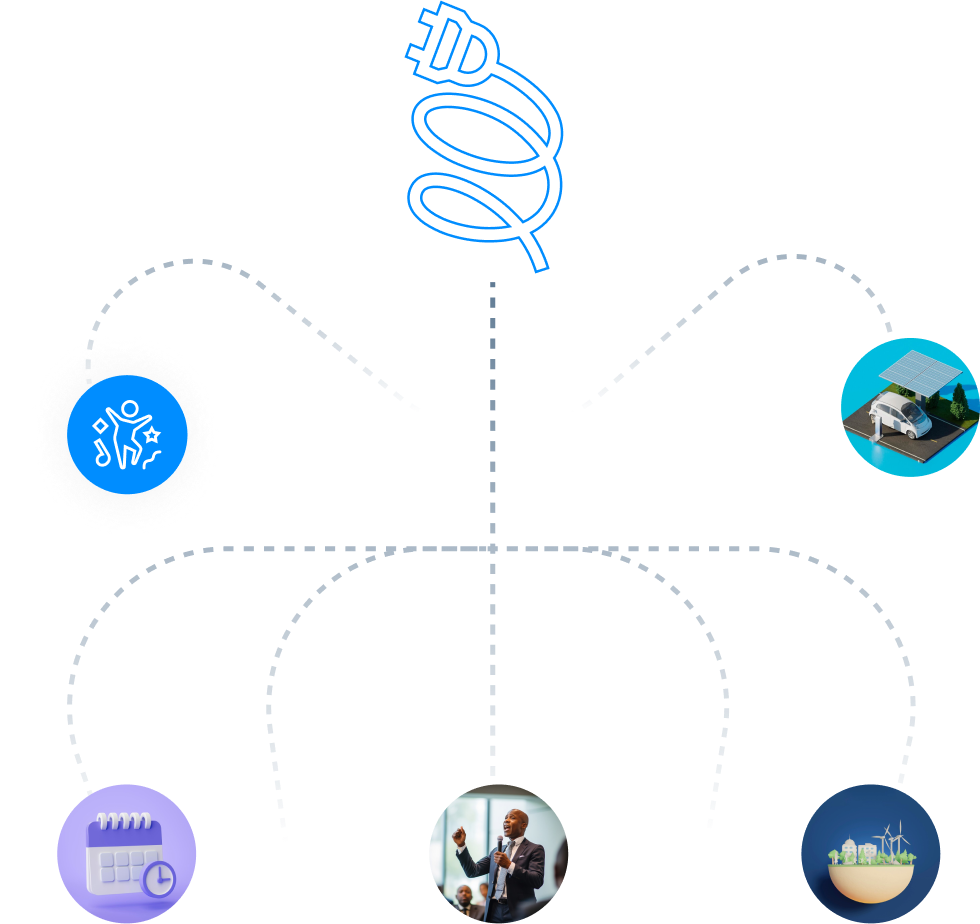Structure
SAM-E 2024 structure
The event is scheduled to take place over three days, from May 30 to 1ᵉʳ June 2024 at the Parc des Expositions in Abidjan. The first two days will be devoted to conferences, workshops and round tables, and the last day to awards ceremonies and demonstrations of environmentally-friendly vehicle performance, followed by a gala dinner.
The show will be attended by investors, energy and automotive companies, and experts from all over the world. It plans to make exhibition rooms and stands available to sponsors and partners.

Structure
SAM-E in Abidjan will provide an opportunity for politicians, experts and all players in the sector to discuss a range of issues relating to ecological mobility.
Show content and topics
Institutional, political and legislative frameworks :
Government policies and tax incentives to encourage the adoption of environmentally-friendly means of transport are often limited or non-existent in many African countries.
Effective regulations and policies are essential to foster the development of the green vehicle market
Decarbonizing means of transport in Africa :
Decarbonizing means of transport in Africa (public transport, car-sharing, cycle paths, biofuels, electric and low-emission vehicles, etc.) is a major challenge for the transition to sustainable development and the fight against climate change.
Transport is one of the main sources of greenhouse gas emissions in many countries, and Africa is no exception.
The conditions for implementing Low Emission Zones for Mobility (ZFE-m) in Africa :
Implementing Low Emission Mobility Zones (LEMZ) in Africa requires an integrated approach, taking into account the local realities, technical capabilities and specific needs of each region.
Charging infrastructure :
One of the main obstacles to green mobility in Africa is the lack of adequate recharging infrastructure. Charging stations are rare, mainly concentrated in urban areas, and often inaccessible in rural areas, limiting the adoption of hybrid and electric vehicles.
Implementation costs
The acquisition costs of hybrid and electric vehicles (EVs) remain high, making them unaffordable for many people in Africa. Electricity generation and distribution infrastructure must also be improved to ensure that the electrical energy needed to power these vehicles is available and affordable;
Access to electricity
Many parts of Africa still lack access to electricity, making eco-mobility difficult to implement. To encourage the transition to eco-friendly vehicles, it is essential to improve access to electricity in general.
Dependence on fossil fuels
In many African countries, electricity generation is largely dependent on fossil fuels.
The transition to green mobility must be accompanied by a shift to cleaner, more sustainable energy sources to maximize the environmental benefits of transport electrification;
Awareness-raising and education
Many people in Africa are not fully aware of the benefits of eco-mobility in terms of reduced carbon emissions, fuel costs and sustainability. Effective awareness-raising and education are needed to encourage the adoption of environmentally-friendly means of transport;
Development of appropriate technologies
Creating technologies tailored to Africa’s unique conditions and needs is crucial. This includes the development of batteries that are durable, resistant to environmental conditions and affordable, as well as vehicles adapted to African infrastructures and terrains;
Contact us
An Ecological Mobility Fair in Africa is a unique event of its kind, held for the very first time on the African continent.
Send us a message
Get in touch with us
SAM-E General Commissariat :
+2250707386198
+2250101401292
If you have a question about our programs, please send an e-mail to the SAM-E teams:
contact@sam-e.ci
